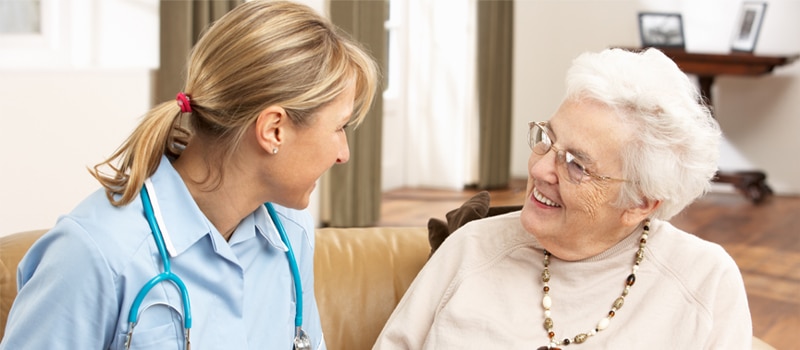
The concept of adopting elderly individuals involves providing Care Support, and companionship to seniors who may be facing isolation, neglect, or lack of familial ties. This article aims to find answer to the most important question of can you adopt an elderly person? In an aging global population, addressing the needs of the elderly has become increasingly important. The importance lies not only in recognizing and respecting the wealth of experience, wisdom, and stories that older individuals possess but also in acknowledging their vulnerability. It also includes the challenges they may encounter, such as loneliness, health issues, and financial struggles.
This article aims to explore the possibilities and considerations surrounding the adoption of elderly persons. It will investigate the emotional, social, and practical aspects of such adoptions, emphasizing the significance of creating a supportive environment for older individuals. By understanding the purpose and potential challenges of adopting an elderly person, individuals and families can make informed decision. It will contribute to fostering a more compassionate and interconnected society, where the elderly are valued and their well-being is prioritized.
The Current State of Elderly Care:
The current state of elderly care is marked by significant demographic shifts, with a growing aging population worldwide. Statistics reveal a notable increase in the proportion of seniors, emphasizing the urgent need for comprehensive and compassionate care solutions. Amidst this demographic shift, elderly individuals grapple with various challenges, chief among them being loneliness and isolation. Many seniors find themselves living alone, with diminished social circles, leading to adverse effects on mental health and overall well-being.
To address these issues, there are existing options for elderly care, ranging from traditional nursing homes to more independent living arrangements like assisted living facilities. Nursing homes provide around-the-clock medical care for those with complex health needs. While assisted living facilities offer a middle ground, providing support for daily activities while maintaining a degree of independence. Recognizing the current state of elderly care involves understanding both the demographic realities and the multifaceted challenges faced by seniors. It is encouraging ongoing efforts to enhance and diversify care options that cater to the unique needs of the aging population.
Defining Elderly Adoption:
Elderly adoption, also known as senior adoption, involves the voluntary acceptance and inclusion of an older individual into a family or support network. It is providing them with care, companionship, and a sense of belonging. Unlike traditional adoption, which typically involves children, elderly adoption focuses on older individuals who may be facing loneliness. The key difference lies in the unique needs and dynamics associated with aging. It is including not only emotional and psychological aspects but also addressing potential health challenges.
The potential benefits of elderly adoption are manifold, extending to both the adopter and the adopted senior. For the adopter, it offers an opportunity to make a positive impact on someone’s life, gain from the wealth of the senior’s life experiences, and provide a supportive and caring environment. On the other hand, the adopted elderly person can find renewed purpose, companionship, and improved overall well-being through the establishment of meaningful connections within a family or support structure.
Considerations for Elderly Adoption:
Considerations for elderly adoption include a range of legal, ethical, and practical aspects that prospective adopters must navigate. On the legal front, the implications of elderly adoption involve adherence to existing legal frameworks governing guardianship, inheritance, and Healthcare decisions. Ethical considerations play a key role, necessitating a commitment to upholding the dignity, autonomy, and well-being of the adopted elderly individual. Assessing the adopter’s ability to provide care is important and involves financial considerations to ensure the provision of necessary resources and support.
Compatibility and matching are central considerations, emphasizing the importance of aligning the needs and preferences of the elderly person with the adopter’s capabilities. Effective communication and mutual understanding between the adopter and the adopted elderly person are important. It is fostering a harmonious relationship and ensuring that the adoption arrangement is favorable to the overall welfare of the senior. These considerations collectively contribute to the responsible and ethical practice of elderly adoption. They ensure that the process is grounded in legality, empathy, and a genuine commitment to the well-being of the adopted individual.
Potential Benefits of Elderly Adoption:
Elderly adoption holds the potential for a range of benefits, particularly in fostering emotional and psychological well-being for the adopted elderly person. By providing a supportive and caring environment, elderly adoption can alleviate feelings of loneliness and isolation commonly experienced by seniors. It is contributing to enhanced mental health and overall life satisfaction. Moreover, the social impact of elderly adoption extends beyond the individual level. It fosters community building by creating intergenerational connections and breaking down barriers between different age groups.
The shared experiences and mutual support within adoptive families can contribute to a more compassionate and interconnected society. Simultaneously, for the adopter, elderly adoption offers opportunities for personal growth and fulfillment. Taking on the responsibility of caring for an older individual allows adopters to develop empathy, patience. A deeper understanding of the challenges associated with aging, leading to a more enriched and meaningful life.
Addressing Concerns and Criticisms:
Addressing concerns and criticisms surrounding elderly adoption involves dispelling common misconceptions and providing clarity on key issues. A prevalent misconception is the assumption that older individuals are burdensome or incompatible with adoptive families. Addressing concerns related to age, health, and compatibility requires a nuanced approach. It is emphasizing that adopters and seniors can work together to assess and manage potential challenges.
It is important to recognize that age alone does not determine one’s capacity for meaningful connections and contributions within a family. Furthermore, public perception plays a key role in shaping the future of elderly adoption. By challenging stereotypes and fostering understanding, society can create an environment that encourages and supports this compassionate approach to Caregiving. Through open dialogue and education, it is possible to reshape perceptions, highlighting the positive impact of elderly adoption on individuals and communities.
The Bottom Line:
In conclusion, the question “Can you adopt an elderly person?” opens up an array of possibilities for individuals looking to make a meaningful impact in the lives of seniors. The concept of adopting a senior, whether in Canada or elsewhere, signifies a compassionate approach to addressing the unique needs of the aging population. As we have explored, adopting an elderly person involves careful consideration of legal, ethical, and practical aspects.
It ensures both the adopter and the adopted senior are well-matched in terms of compatibility and mutual understanding. As we navigate the area of adopting a senior, it becomes evident that this practice not only enhances the well-being of the elderly but also contributes to community building and positive social impact. The act of adopting a senior emerges as a rewarding journey, fostering connections that bridge generations and promote a more compassionate and inclusive society.
FAQ:
Can I legally adopt an elderly person?
No, legal adoption typically applies to children, and alternative legal arrangements may be more appropriate for elderly care.
Is there a specific age limit for adopting seniors?
No, there isn’t a defined age limit, but compatibility and the ability to meet their needs are essential considerations.
Can I adopt an elderly person without their consent?
No, consent and open communication are important; elderly adoption should be a collaborative decision.
How to do adopt a senior?
A: Establish legal and caregiving arrangements, ensuring compatibility with the senior’s needs and preferences, without involving a formal adoption process.
Q: How can I adopt a senior?
A: Establish legal and caregiving arrangements through appropriate channels, considering the senior’s needs and preferences, without a formal adoption process.

